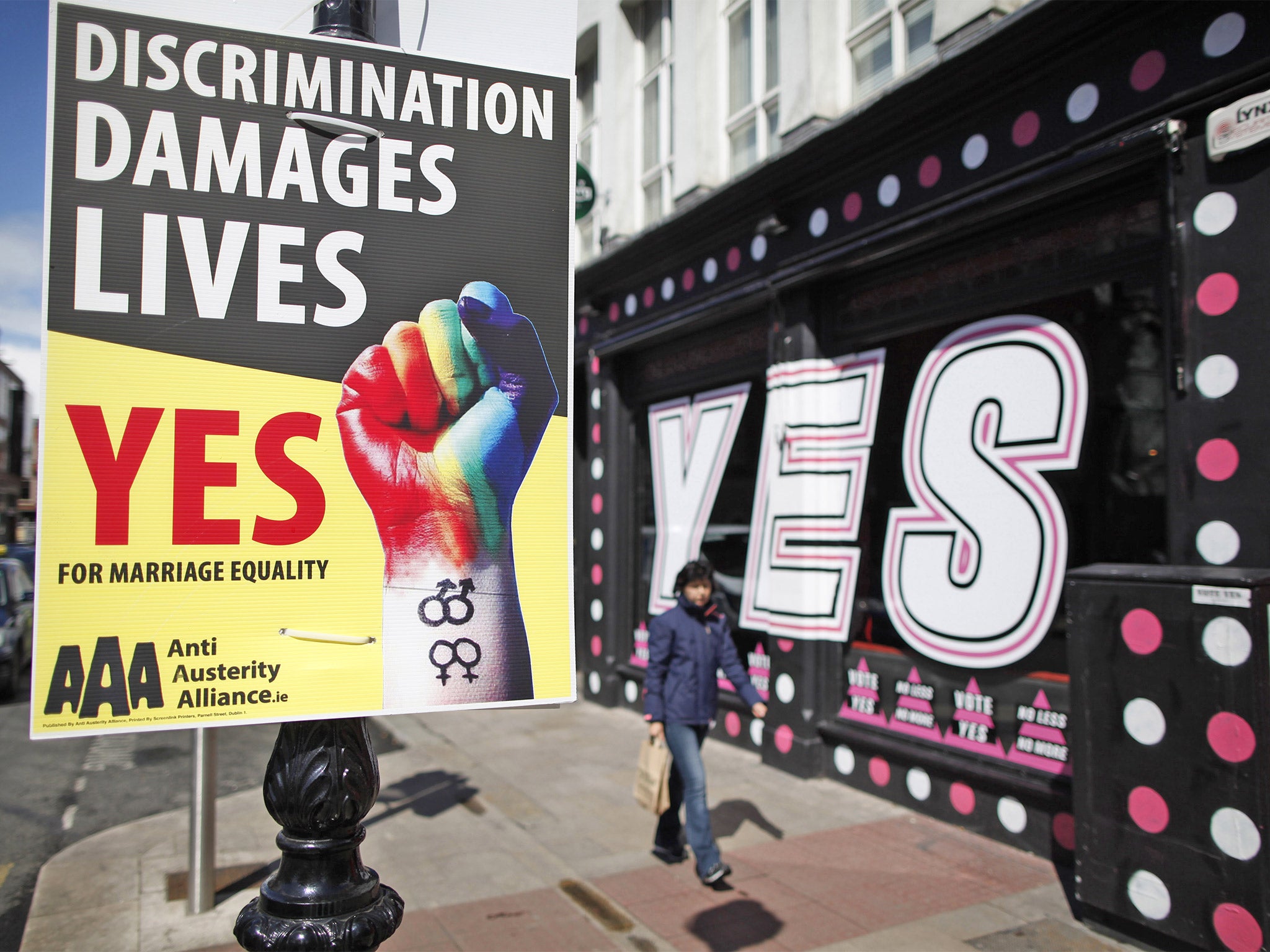Ireland's same-sex marriage vote: Irish living in UK flock back to make referendum
Amongst young people, there is a sense of a historic moment when liberal values can replace the firm grip of Catholic morality

Your support helps us to tell the story
From reproductive rights to climate change to Big Tech, The Independent is on the ground when the story is developing. Whether it's investigating the financials of Elon Musk's pro-Trump PAC or producing our latest documentary, 'The A Word', which shines a light on the American women fighting for reproductive rights, we know how important it is to parse out the facts from the messaging.
At such a critical moment in US history, we need reporters on the ground. Your donation allows us to keep sending journalists to speak to both sides of the story.
The Independent is trusted by Americans across the entire political spectrum. And unlike many other quality news outlets, we choose not to lock Americans out of our reporting and analysis with paywalls. We believe quality journalism should be available to everyone, paid for by those who can afford it.
Your support makes all the difference.Wherever green is worn, the same-sex marriage referendum has dominated conversation for months. Thousands of twentysomething Irish people have made Britain their home in the wake of the recession, and in London flatshares, one question has become ubiquitous: “Are you going home to vote?”
On 22 May, Ireland goes to the polls with an opportunity to become the first country in the world democratically to approve same-sex marriage. But unlike in the UK, where expatriates can vote from abroad for 15 years, Ireland has extremely restrictive eligibility laws. To be counted, citizens – excluding diplomats – must make the physical trip to the polling station where they are registered.
Conor O’Neill, 25, is the Brussels-based co-founder of We’re Coming Back, which advocates voting rights for Irish citizens abroad. For him, the referendum has brought the legal situation into focus. “Recent emigrants weren’t aware that they couldn’t vote when they moved away,” he said. “These are often young people who left for a few years to work, or as students, and they’ve been expressing their frustrations.”
Irish people resident in the UK are entitled to vote here, but, for many, their political energies have been directed elsewhere. “With Irish pals, every time we meet up, going home for the referendum has been at the forefront, even with the election going on,” says Hannah Little, 25, who works in the music industry in London. “My plan is to go home to settle and have children. If my kids turn out to be gay, I want my voice to be heard now.”
Amongst young people, there is a sense of a historic moment when liberal values can replace the firm grip of Catholic morality. Dylan Haskins, who ran for the Dail aged 23 in 2011 before beginning to split his time between Dublin and London as a broadcaster, says that friends in the UK are often surprised that same-sex marriage is not legal in Ireland already. But a direct vote to change the constitution would be “a remarkably positive affirmation of just how socially progressive Ireland has become”, he says. And if it fails? “That doesn’t bear thinking about.”
Join our commenting forum
Join thought-provoking conversations, follow other Independent readers and see their replies
Comments